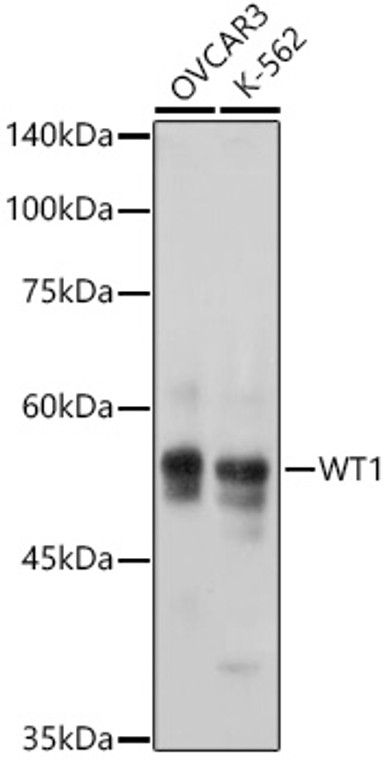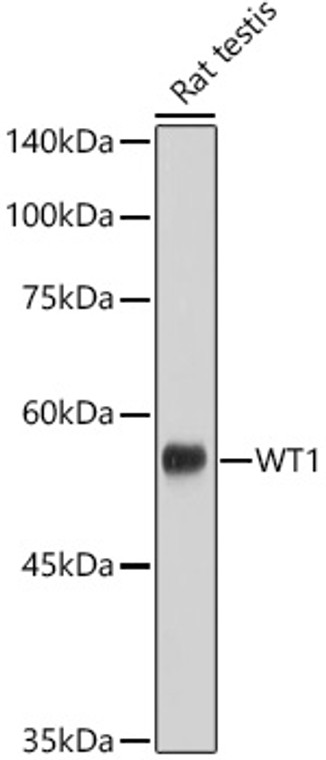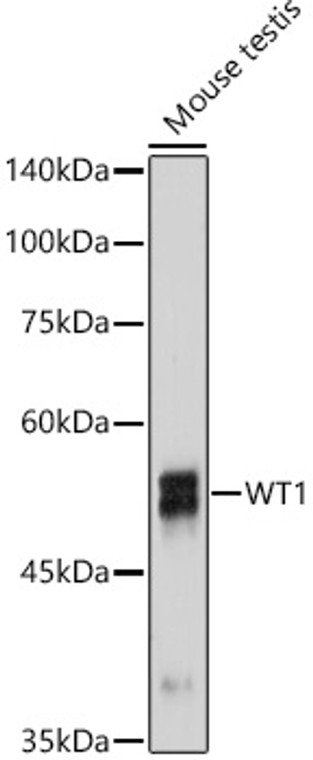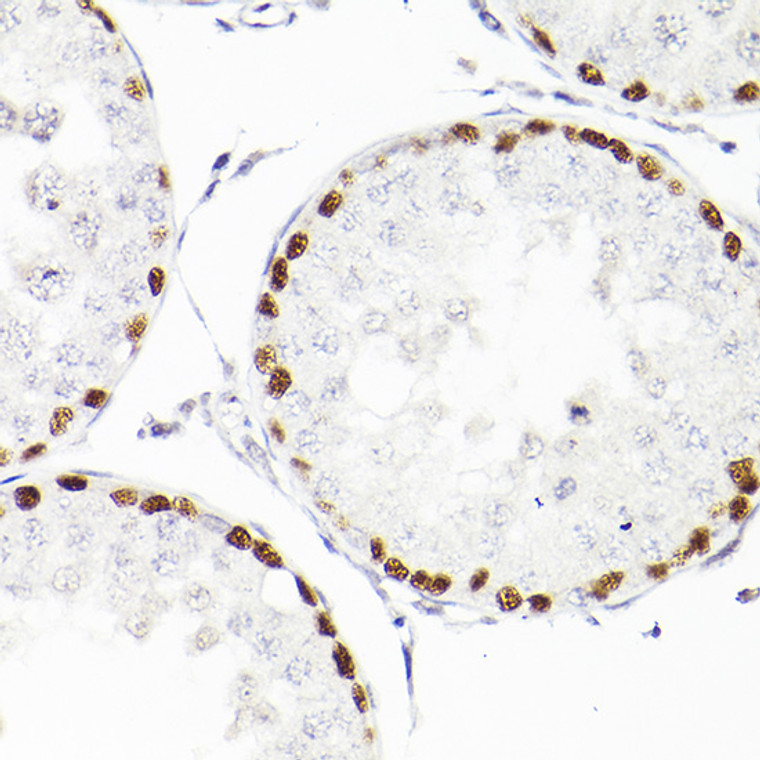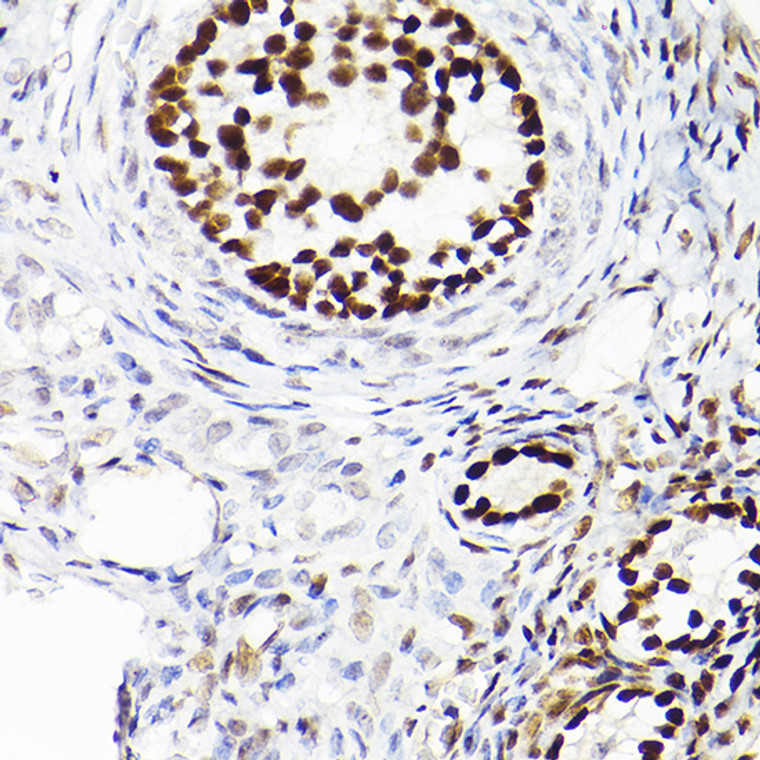| Host: |
Rabbit |
| Applications: |
WB/IHC |
| Reactivity: |
Human/Mouse/Rat |
| Note: |
STRICTLY FOR FURTHER SCIENTIFIC RESEARCH USE ONLY (RUO). MUST NOT TO BE USED IN DIAGNOSTIC OR THERAPEUTIC APPLICATIONS. |
| Short Description: |
Rabbit monoclonal antibody anti-WT1 (60-250) is suitable for use in Western Blot and Immunohistochemistry research applications. |
| Clonality: |
Monoclonal |
| Clone ID: |
S4MR |
| Conjugation: |
Unconjugated |
| Isotype: |
IgG |
| Formulation: |
PBS with 0.02% Sodium Azide, 0.05% BSA, 50% Glycerol, pH7.3. |
| Purification: |
Affinity purification |
| Dilution Range: |
WB 1:500-1:1000IHC-P 1:50-1:200 |
| Storage Instruction: |
Store at-20°C for up to 1 year from the date of receipt, and avoid repeat freeze-thaw cycles. |
| Gene Symbol: |
WT1 |
| Gene ID: |
7490 |
| Uniprot ID: |
WT1_HUMAN |
| Immunogen Region: |
60-250 |
| Immunogen: |
Recombinant fusion protein containing a sequence corresponding to amino acids 60-250 of human WT1 (P19544). |
| Immunogen Sequence: |
PPPPPPPPPHSFIKQEPSWG GAEPHEEQCLSAFTVHFSGQ FTGTAGACRYGPFGPPPPSQ ASSGQARMFPNAPYLPSCLE SQPAIRNQGYSTVTFDGTPS YGHTPSHHAAQFPNHSFKHE DPMGQQGSLGEQQYSVPPPV YGCHTPTDSCTGSQALLLRT PYSSDNLYQMTSQLECMTWN QMNLGATLKGV |
| Tissue Specificity | Expressed in the kidney and a subset of hematopoietic cells. |
| Function | Transcription factor that plays an important role in cellular development and cell survival. Recognizes and binds to the DNA sequence 5'-GCG(T/G)GGGCG-3'. Regulates the expression of numerous target genes, including EPO. Plays an essential role for development of the urogenital system. It has a tumor suppressor as well as an oncogenic role in tumor formation. Function may be isoform-specific: isoforms lacking the KTS motif may act as transcription factors. Isoforms containing the KTS motif may bind mRNA and play a role in mRNA metabolism or splicing. Isoform 1 has lower affinity for DNA, and can bind RNA. |
| Protein Name | Wilms Tumor ProteinWt33 |
| Database Links | Reactome: R-HSA-9690406 |
| Cellular Localisation | NucleusNucleolusCytoplasmIsoforms Lacking The Kts Motif Have A Diffuse Nuclear LocationShuttles Between Nucleus And CytoplasmIsoform 1: Nucleus SpeckleIsoform 4: NucleusNucleoplasm |
| Alternative Antibody Names | Anti-Wilms Tumor Protein antibodyAnti-Wt33 antibodyAnti-WT1 antibody |
Information sourced from Uniprot.org
12 months for antibodies. 6 months for ELISA Kits. Please see website T&Cs for further guidance

